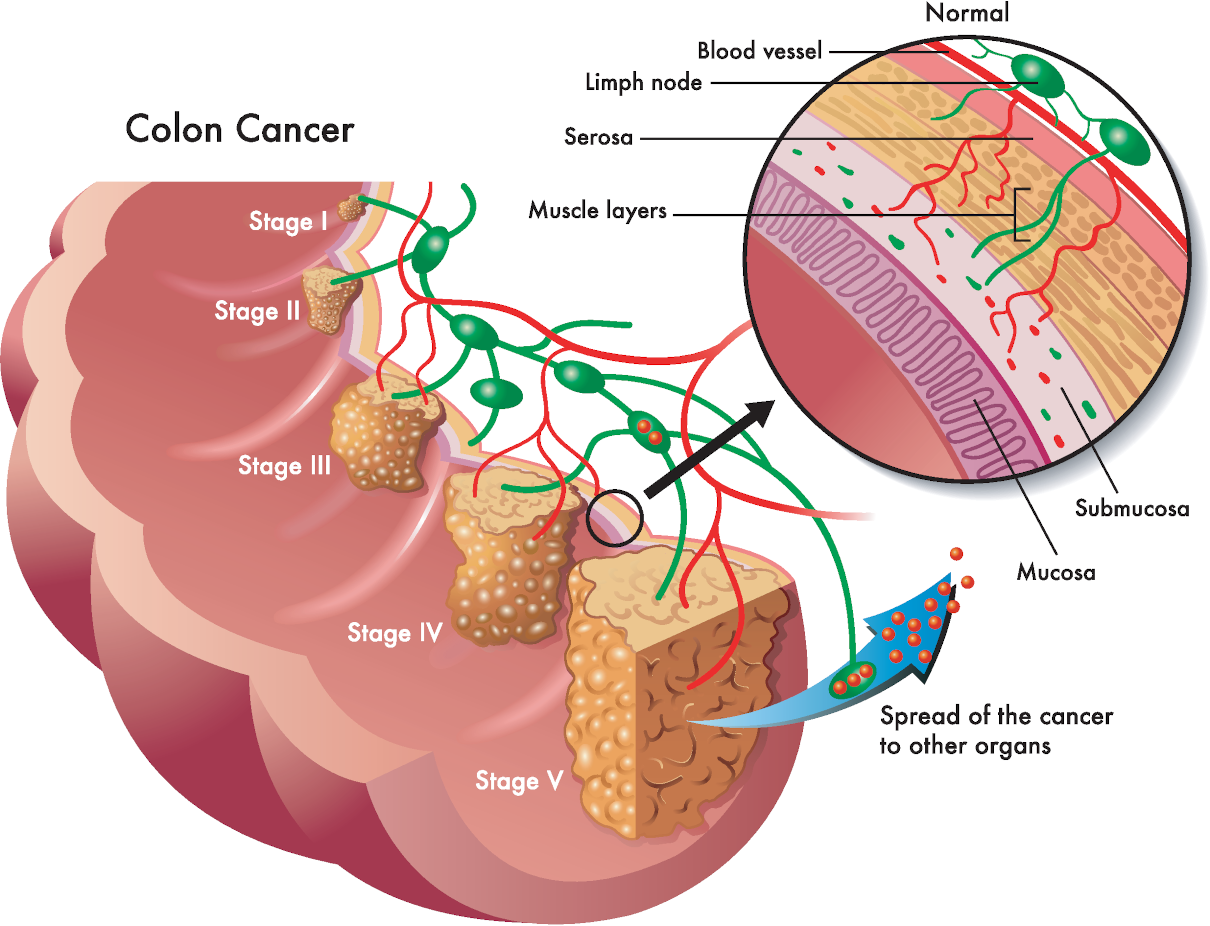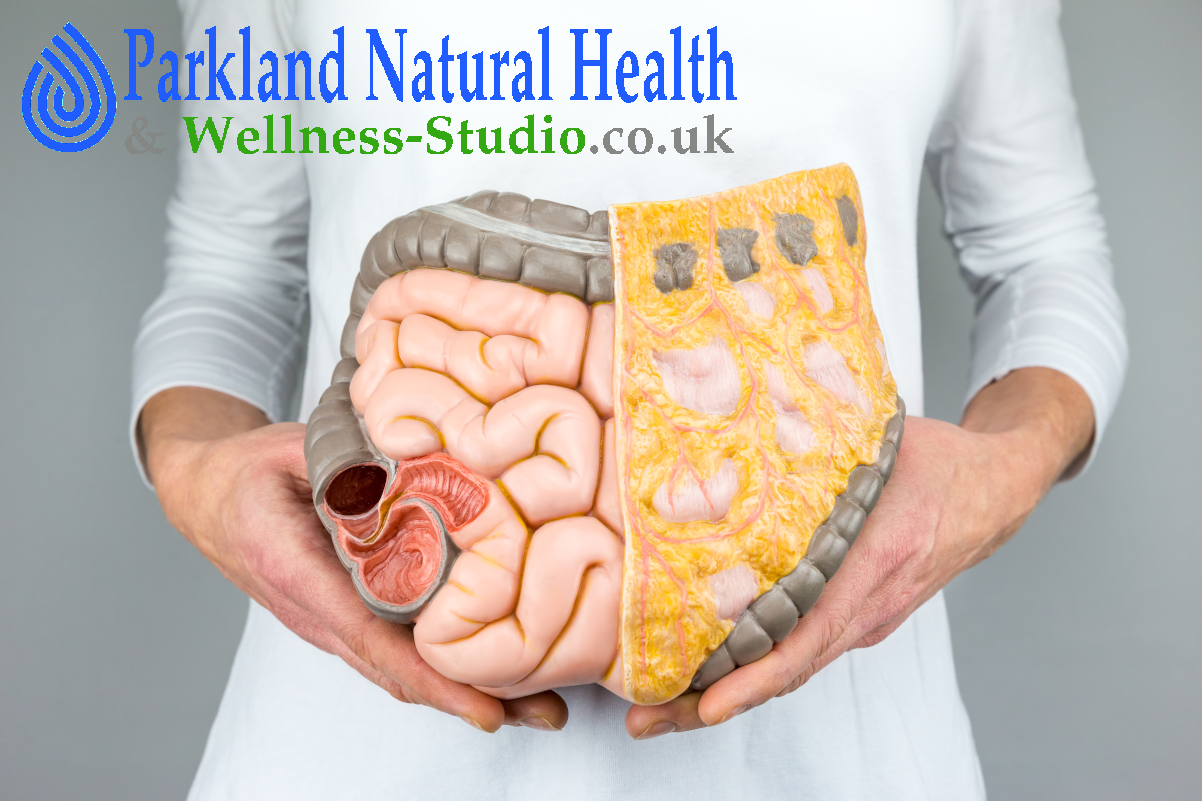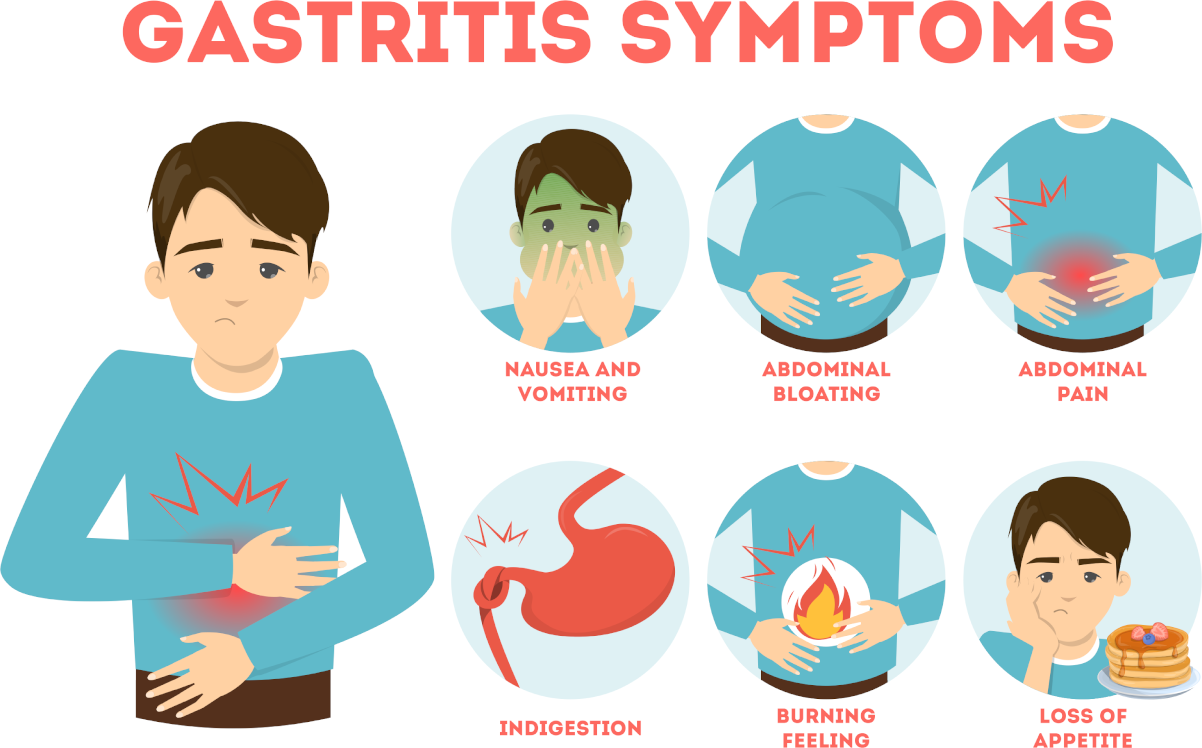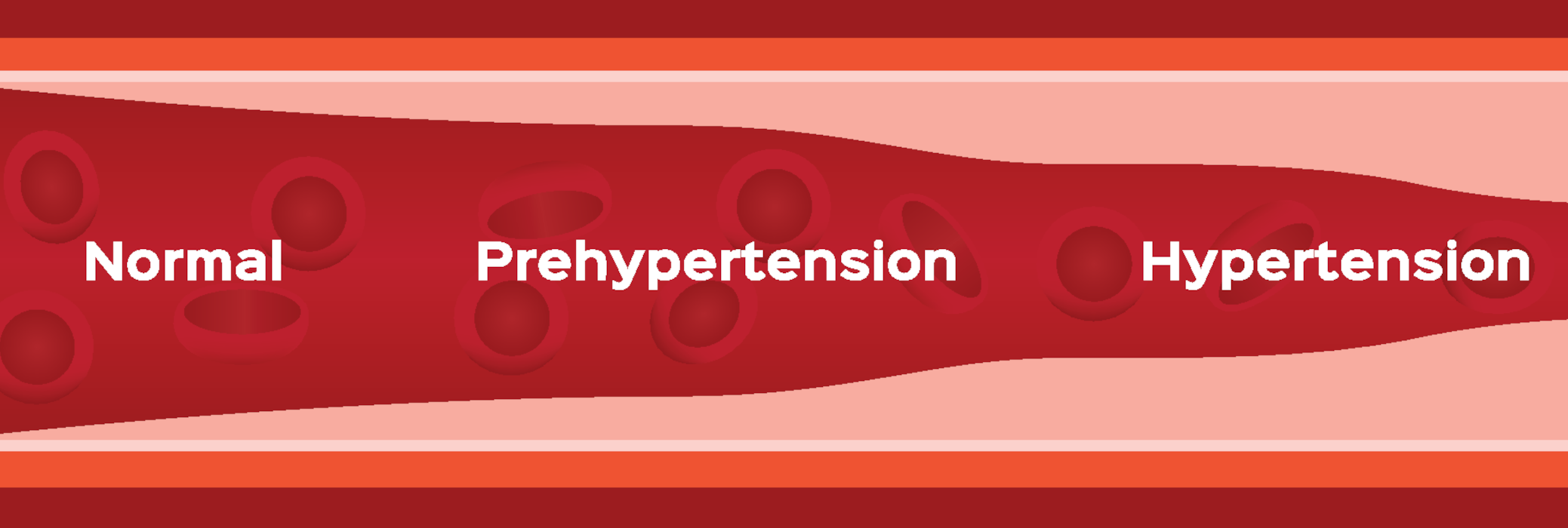
Hypertension, or high blood pressure, makes us more susceptible to coronary heart disease, strokes and kidney disease. People who are overweight and do not get much exercise are at a higher risk of high blood pressure.
If a person is willing to change their lifestyle and diet, blood pressure can be treated without drugs (always see your doctor first). In societies where salt is limited, hypertension is rare. Too much caffeine, alcohol and smoking, combined with high blood pressure, can significantly increase the chances of heart disease or stroke.
Stress is a significant factor in hypertension. Chemicals such as adrenaline and noradrenaline are released into the bloodstream, increasing heart rate, breathing and blood pressure. It is known as the “fight or flight” response, and in the Stone Age when the hunter had to sprint to get out of danger, the adrenaline gave him the energy to do this. It also causes the blood to thicken and clot more quickly to help with any injuries he might incur. We don’t face the same sort of dangers as Stone Age men. Still, our stressful lifestyles, stimulants such as caffeine, alcohol and smoking cause our bodies to react the same way, resulting in hypertension and other degenerative diseases, including coronary heart disease, osteoporosis and diabetes.
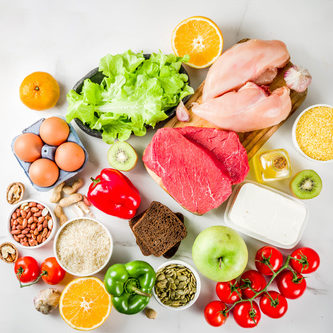
Food intolerance test of 208 ingredients
This is our most comprehensive food and drink test. It analyses your client’s IgG antibody reactions to 208 food and drink ingredients. This test will highlight their food triggers and help you formulate an IgG-guided elimination diet together.
Hypertension factors
High blood pressure is closely related to lifestyle and dietary factors. Some nutritional factors include obesity, a high-sugar diet, high saturated fat and low essential fatty acid intake, and a diet low in magnesium, calcium and vitamin C.
Foods to avoid
- Eradicate sodium-based salt, as there appears to be a clear link between salt use and hypertension. Be aware that takeaway meals, shop-bought biscuits and pies, meals you eat out, and any processed food are often high in salt. Use potassium—or magnesium-based salt, such as Solo (available from health food shops).
- Eat grains such as brown rice, buckwheat, millet, and oats. Those are good sources of B vitamins needed for the immune system and used up by stress.
- When patients eliminate all caffeine, blood pressure usually drops by up to 20 points. Consider the caffeine in chocolate, tea, and coffee.
- If substituting with decaffeinated coffee, use an organic brand.
- Sugar is also problematic as it turns into hard fat if not used during exercise.
- If patients eliminate all of the above and there is still a tendency towards high blood pressure, then consider an allergy or food intolerance, especially if there is also a migraine problem.
- People exposed to toxic metals such as lead can ingest them through drinking water. Buying a good-quality water filter is a good idea.
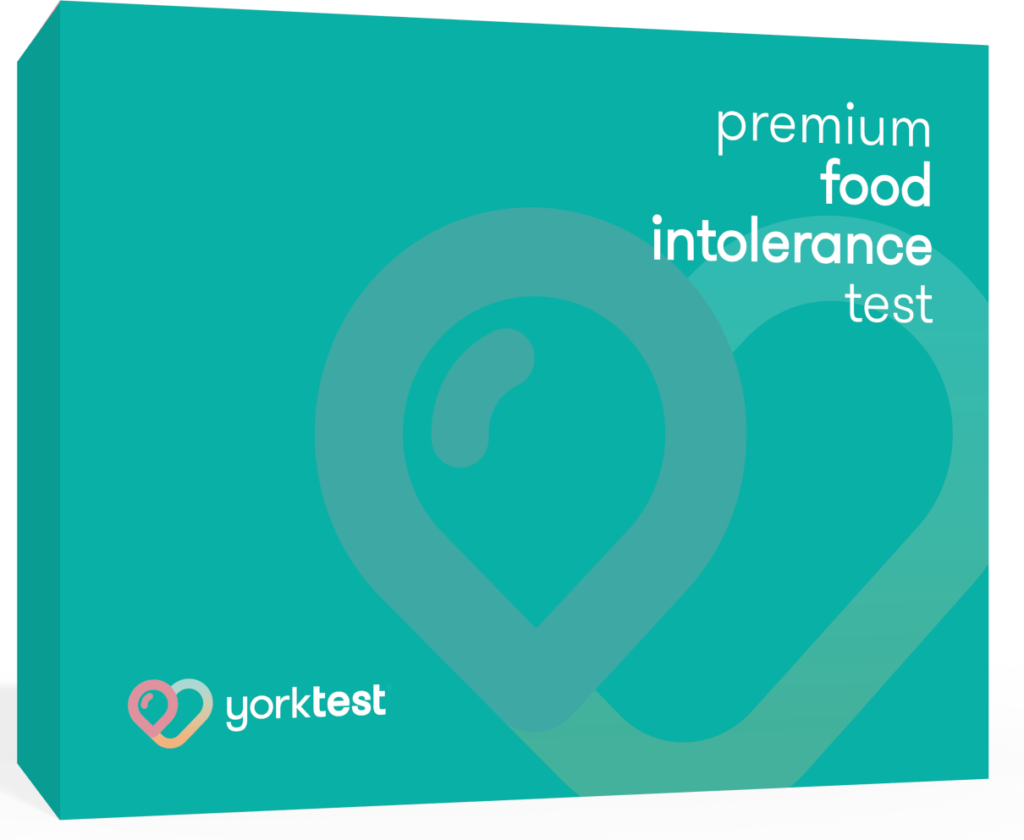
Food Intolerance Testing – Premium
Are you suffering from headaches, bloating, or tiredness? These are often signs of food sensitivity or intolerance affecting your daily life. Premium Food Intolerance Test is our most comprehensive food intolerance test, which analyses your IgG reactions to 208 food and drinks ingredients. YorkTest will provide precise results and nutritional support to help replace problem foods and optimise your diet.
Foods to add
- Potassium helps lower blood pressure. If you have a prescription for a potassium diuretic, consult a doctor before consuming more fruit than usual or making any changes to your diet.
- Bananas are a good source of potassium.
- Use Solo salt substitute, which is potassium and not sodium-based.
- Green vegetables, fresh fruit, unsalted nuts and seeds, seafood, soya flour, butterbeans, currants, dried figs and apricots, almonds, brazil nuts, black treacle and sunflower seeds are all rich in potassium.
- Freshly made fruit and vegetable juices are the best way to get the minimum five daily portions we all need. They also contain vitamin C. Pectin found in apples aids in reducing blood pressure.
- Try switching to a more vegetarian-based diet. As a general rule, long-term vegetarians tend to have lower blood pressure.
- Eat more onions, garlic, broccoli and celery, which lower blood pressure.
- Use unrefined organic virgin olive oil, walnut and flaxseed oils for salad dressings and eat oily fish.
- Coriander can help to detoxify toxic metals from the body.
- Vitamin E is a natural vitamin E source that helps to thin the blood naturally. Therefore, eat more soya beans, wheat germ, dark green vegetables, alfalfa sprouts, hazelnuts, almonds, and avocados. (Always consult your doctor if you take blood-thinning medication before supplementing with vitamin E.)

One colonic irrigation session including consultation
Colon irrigation and comprehensive consultation with a professional colon hydrotherapist registered with RICTAT and ARCH at the Parkland Clinic in Holborn. We use a closed system only—London’s best colonic hydrotherapy deal.
Useful supplements
- Calcium and magnesium can lower blood pressure. So, consult a nutritional therapist for dosage. Nuts and seeds are good sources of both.
- Organ meats contain coenzyme Q10, and as we age, levels fall.
- Jiaogulan is a herb that may help to modulate blood pressure, lowering it when it is too high and raising it when it is too low.
- Include a good-quality multivitamin/mineral complex, as the B vitamins help support the immune and nervous systems.
Helpful hints about hypertension
- Liver congestion and constipation can aggravate high blood pressure.
- Try to find enjoyable relaxation methods, such as meditation, tai chi, yoga, exercising, walking or swimming.
- Have a regular aromatherapy massage using rosewood, ylang-ylang, clary sage and marjoram oils.
- Cayenne pepper is anti-hypertensive; try using one teaspoon in daily cooking (do not use it if you are suffering from stomach ulcers).
- Exercise is vital in controlling this condition. With a doctor’s permission, start walking briskly for 30 minutes daily.
- Rosemary and nettle tea sipped regularly can help lower blood pressure.
- Try to get sufficient sleep.
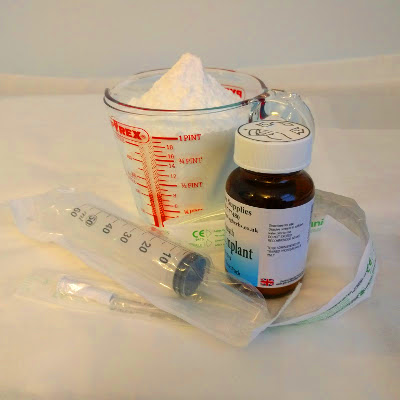
Probiotic implant and alkalising colonic with bicarbonate of soda
Alkalising colonic irrigation with bicarbonate of soda and high strength probiotic implants and comprehensive consultation is available at Parkland Natural Health Clinic.
References
Balch & Balch, Prescription for Nutritional Healing Avery 1997
Murray M & Pizzorno J, Encyclopedia of Natural Medicine Revised 2nd Edition Prima Publishing 1998





